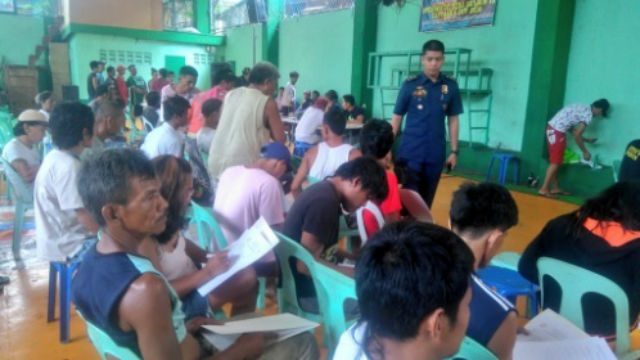SUMMARY
This is AI generated summarization, which may have errors. For context, always refer to the full article.

CEBU CITY, Philippines – Over 7,000 suspected drug users and drug dealers have surrendered in Cebu province since President Rodrigo Duterte was elected on May 9.
Cebu Provincial Police Office (CPPO) Director Clifford Gairanod said on Monday, July 11, that those on local watchlists have been surrendering to police and local governments.
“Those who have outstanding warrants would be served, but those who do not will be monitored by the police,” Gairanod said.
Of the 7,000 who surrendered, none have been admitted to a drug rehabilitation program, according to Cebu Provincial Anti-Drug Abuse Office (CPDAO).
CPDAO’s director, Carmen Durano Meca, said this is why they called the multisectoral meeting on Monday – “to address the problem of rehabilitation and treatment for drug users in Cebu province.”
According to Meca, there is only one public rehabilitation center in Cebu, located in the town of Argao. There are 51 municipalities and 3.85 million people in Cebu province. Another 866,000 people live in Cebu City.
Drug rehabilitation centers nationwide are also struggling to accomodate the number of users and dealers who have been voluntarily surrendering to authorities.(READ: Rising number of users seeking drug rehab is a ‘happy problem’ but…)
“We will need to come up with a multisectoral [approach] to address rehabilitation and help those who surrendered get in outpatient programs,” Meca said.
On Monday, representatives of the Philippine National Police, the Department of Health, and the Department of Social Welfare and the Development, as well as non-governmental organizations met to discuss how best to help the drug suspects go through rehabilitation.
Private rehabilitation centers, addiction specialists, and addiction support groups also shared their best practices on how to implement a province-wide anti-drug addiction program in Cebu.
“Addiction is a disease that is chronic, progressive and lifelong,” said Gen E, a representative of Keep It Simple Services, a private drug rehabilitation facility in Cebu City.
She would not reveal her last name out of company tradition. She added that patients, “must have self will and a change of lifestyle to manage the disease.”
She said that addiction should be treated as a disease and not a crime.
Hers is a view starkly different from President Duterte’s. The Chief Executive, in one speech, encouraged citizens to kill drug users and pushers.
“The problem is once you’re addicted to shabu, rehabilitation is no longer a viable option,” Duterte told a crowd in Cebu last June.
Gen admits that it is difficult for those who are dependent on drugs to stay off them once they are addicted, but it is not true that a user cannot stop using once he or she starts. “The disesase can be managed with the proper treatment and continued maintenance,” she said
Groups like Narcotics Anonymous (NA) have volunteered to expand their support groups across the province with the help of government and civil society organizations.
“NA is not a rehab, but a venue to unload, exchange, and listen without prejudice, judgement, or fear. We are a relapse prevention group,” shared Alain Aliño of NA.
According to CPDAO, there is budget available at the provincial and local levels to help support drug rehabilitation and treatment.
The local government aims to launch community-based treatment programs across the province. Community-based treatment integrates public health and community services to treat those who cannot afford private rehabilitation.
Of the 7,000 who have surrendered in the province, 1,017 are known dealers, and the rest are admitted users.
“The next step is to come up with an action plan that can be implemented immediately,” Meca said.
She knows that more drug users are expected to surrender in the coming days, and the local government will need to move fast on getting treatment for the thousands who are waiting for help. – Rappler.com
Add a comment
How does this make you feel?
There are no comments yet. Add your comment to start the conversation.